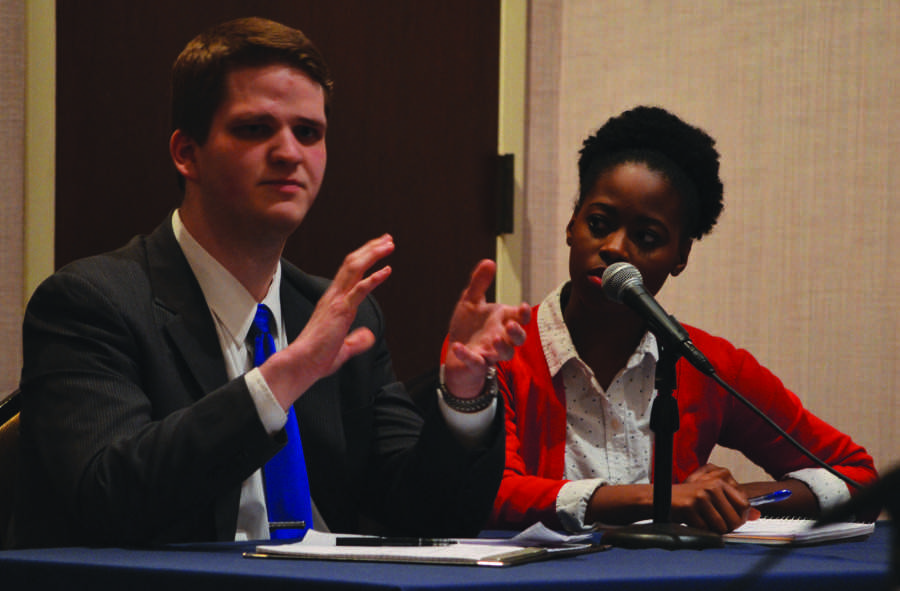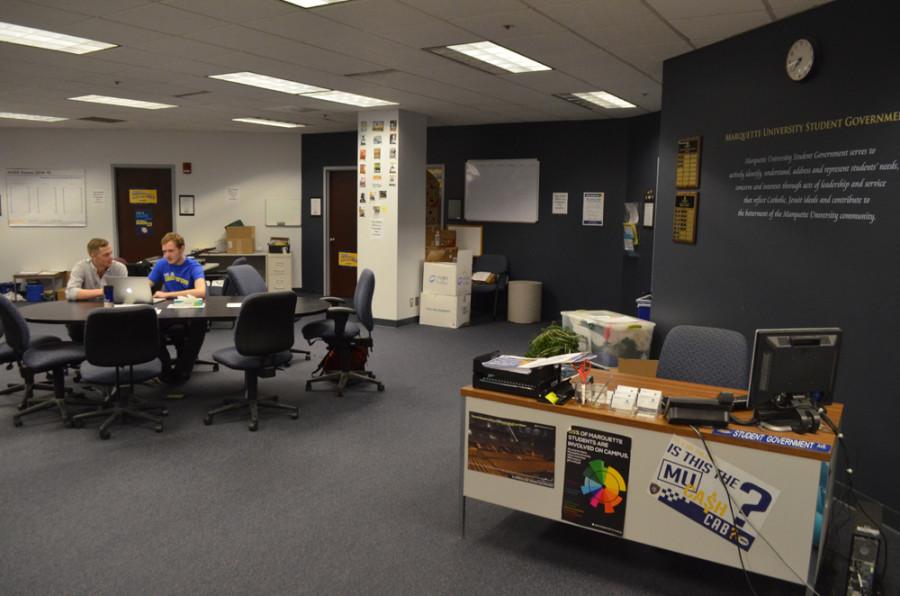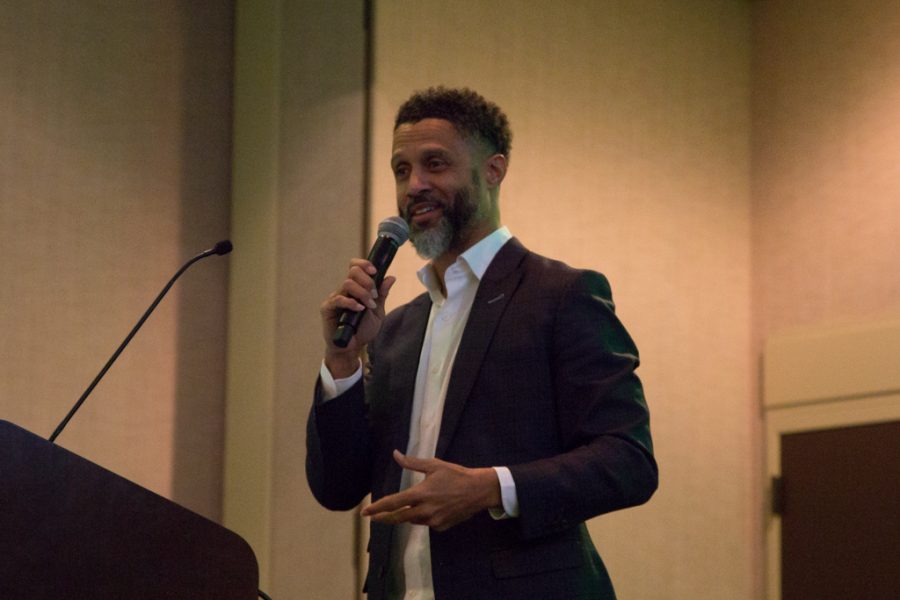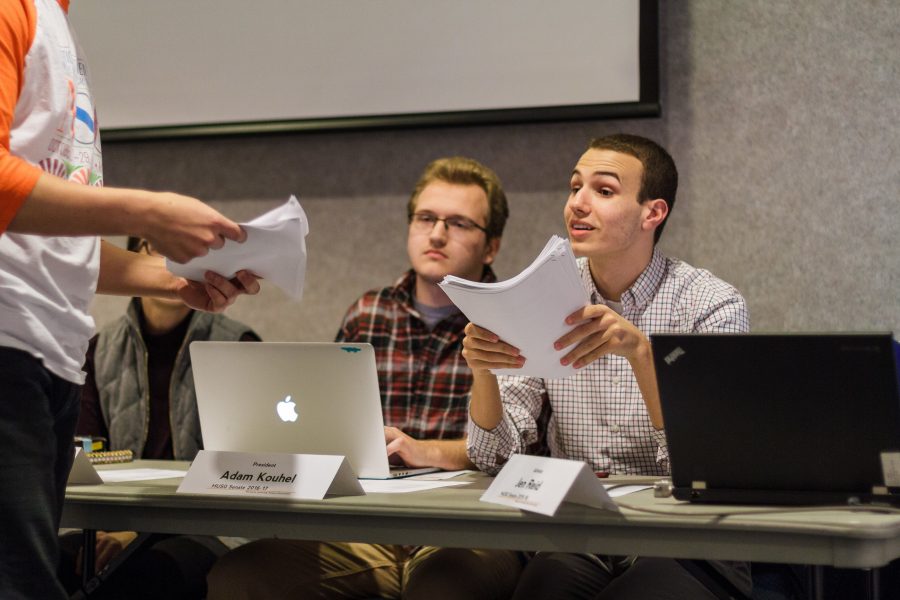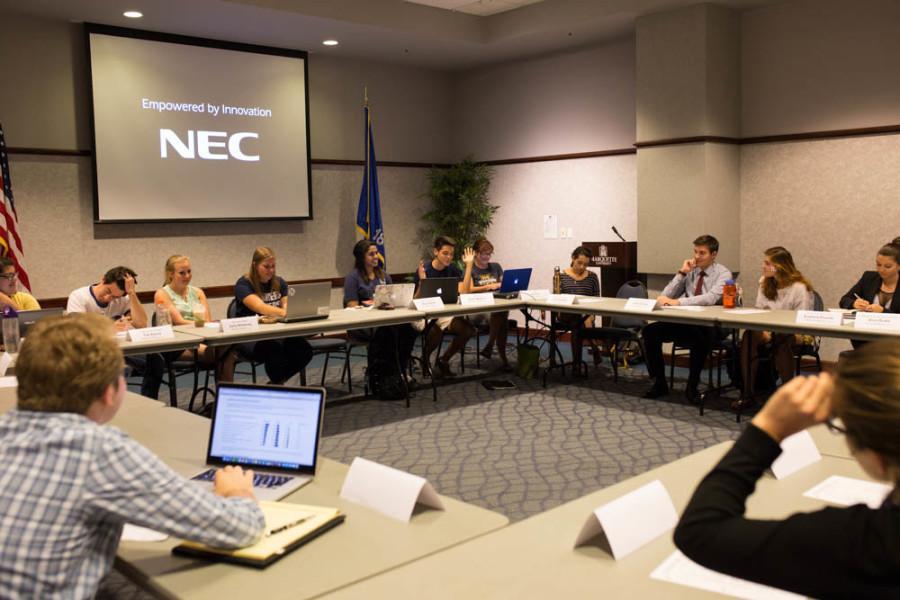As Marquette Student Government President-elect Kyle Whelton, a junior in the College of Arts & Sciences, approaches his inauguration on Tuesday, he announced his first priority will be spending part of the almost $250,000 in the Prior Year Reserve Fund.
Every year, students pay $30 per semester in student organization fees. It is the responsibility of MUSG – through student organization funding, programs and other areas – to spend this money. All unused funds are deposited into the Prior Year Reserve Fund.
MUSG’s financial policies mandate the reserve fund be at least 10 percent of the annual operating budget to cover budget deficits, making the $250,000 in the reserve more than five times the required amount.
According to the MUSG Constitution, the reserve fund can be utilized for “capital goods” exceeding $500, or “to subsidize the sponsorship of a qualifying student service.” The Constitution defines a capital good as “office-related equipment whose useful life is greater than one year.”
MUSG accessed the reserve fund twice in the last two weeks. It approved a resolution for adding water bottle fillers to various water fountains around campus and passed legislation to fund a shuttle program to bring students to Target. The combined cost of these two programs is expected to be $14,000, according to MUSG Financial Vice President Nick Ciccone, a junior in the College of Business Administration.
The Target shuttle is part of an ongoing MUSG effort to address the food desert problem around Marquette’s campus.
“The program that we did in the fall, which Target cosponsored, was really successful for the student body,” said Programs Vice President Ryan Twaddle. “This is just our trial run, and if it doesn’t work, we’ll try and do something different.”
Shuttle services and water bottle fillers are not the only current plans to utilize the reserve fund. Whelton and his running mate, Natalie Pinkney, campaigned on two ideas to access the reserve fund.
Whelton’s first idea is to implement a reusable to-go container system in some of the dining halls on campus. The plan is to use the “Ozzi” system, which is a machine that gives users a reusable container they would have to return to the machine later. The health department approved the system, but Sodexo only afford one machine. Whelton said he would like to access the reserve fund to purchase another machine, which he said would be about $16,000.
“At least one more, ideally two, is really needed to get this thing going,” Whelton said.
The other plan Whelton championed during the campaign is the replacement of fitness equipment on campus. Whelton specifically mentioned the Rec Plex “needs some TLC.” He said he does not have specific numbers on the costs to improve workout equipment both in the Rec Plex and in the dorms, but expects it to be substantial.
Whelton also said he would be open to hearing proposals from student groups on how to spend the reserve fund. Ciccone, who hears student funding requests as part of his role on the Student Organization Funding Committee, offered some criteria for potential student proposals to MUSG.
“Clearly we want to see evidence that students want this,” Ciccone said. “That it is going to be something that will benefit all students on campus.”
Ciccone also said he would want to see exact costs for the proposed idea, rather than just generalities.

